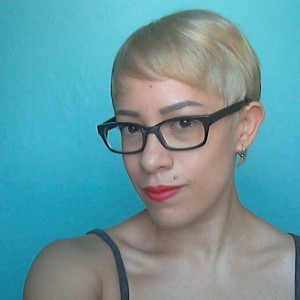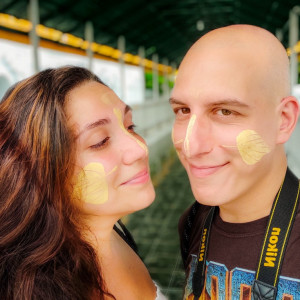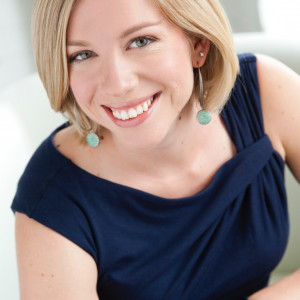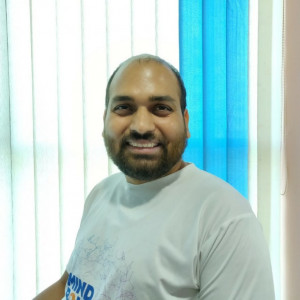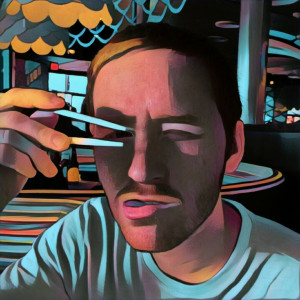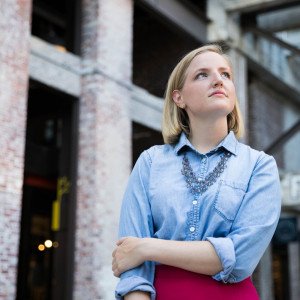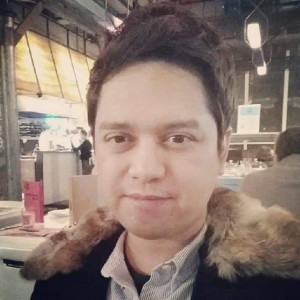How do you stay on task?
Interview with Jenna, a freelance writer who works remotely to help manage her health
- I try to avoid multitasking or working hungry.
- I keep my phone on silent. If I find myself getting distracted by it I’ll put it upside down so I don’t see notifications. I also make sure that notifications don’t get sent to my computer.
- I’ve trained myself to not go on social media constantly anymore; It’s such a time sink. I use it sometimes to get ideas, but I allot time specifically for that purpose instead of scrolling endlessly through my feed.
- Acknowledging when I need a break. Scheduling breaks, too, so I get them no matter what, and not trying to do things all in one sitting. Giving ideas time to breathe is so important!
- I give myself early deadlines a lot to ensure I finish things early, and to put pressure on myself. I might even turn it into a game where I’m seeing how many words I can get out in 2 hours or something like that.
- I like to keep a running list that I can add things to throughout the day, as I think of them, like ideas or things that I just remembered I need to take care of – basically anything that can pull me off task. Then I revisit the list later on when I have downtime.
- Sometimes I procrastinate by working on something else that I need to do (as opposed to doing something mindless). This doesn’t keep me on task but it does help me get things done. For example, cleaning my kitchen when I’m putting off writing an article (or vice versa). It’s weird, but it works.
- Developing more productive habits, like dealing with emails once I read them, and sticking to a schedule.
Jenna started working remotely after realizing her office job was causing health problems—now she works as a freelance writer and writes about self-improvement
Read full interview from Interview with Jenna, a freelance writer who works remotely to help manage her health.
Interview with Lily, an entrepreneur building VR conferencing for remote teams
The best productivity tip I can recommend is to set aside dedicated work time and build it into a routine.
For example, one of my routines was wake up at 7 AM, take my dog for a walk, make breakfast and get to work. At noon I took my dog for another walk and then finish my work and shut down my computer at 5.
For me, having core work ours was the key to my productivity because I knew I wouldn't have time later in the night to get work done.
Lily has almost a decade of remote work experience, now she's building the team collaboration tool of the future with Virtual Reality
Read full interview from Interview with Lily, an entrepreneur building VR conferencing for remote teams.
Interview with Dani and Luca, digital nomads who have mastered work and travel
Well, we love our jobs, and we love to travel. We couldn't travel if we didn't have these kinds of jobs and we couldn't work in this cool way if we didn't travel.
Lucky for us, we don't feel the stress: our tasks are the first things we think about when we wake up, and we are happy to see them get done.
Dani and Luca have mastered the art of traveling while working—see their hacks & tips for thriving as digital nomads.
Read full interview from Interview with Dani and Luca, digital nomads who have mastered work and travel.
Interview with Alexandra Cote, a remote digital marketer and freelancer
Again, it's all on a mental level for me. Lots of years of studying for school and college helped me develop this habit of never leaving work for later. Later is for fun, duh!
So when I know I have something to do, I just do it until it's done. If I have multiple things to take care of, I just choose one based on priority, interest, or I just begin with the task I have more ideas for.
I do have one trick, though. And it's good. No matter how productive you are, you'll come across distractions. Let's say I'm writing an article and need to check Twitter for what other people are saying on the topic.
Twitter is full of distractions, but instead of getting caught up with them, I simply bookmark everything. When I get a bit more free time, I just check all of my bookmarks. I've been doing the bookmark trick for 10+ years now. Always works. Surprisingly, for many of them, I have no interest left, so I'm literally getting hours out of this.
Alexandra juggles freelancing, a full-time remote job, YouTube, and Skillshare instructing. How does she manage it all? Find out in her interview.
Read full interview from Interview with Alexandra Cote, a remote digital marketer and freelancer.
Interview with Kristi, a CEO and remote team leader
I live according to my calendar and my very low-tech to-do list.
But yes, I still get pulled away from things; not every item is crossed off by the end of a day, much to my chagrin.
Kristi is a CEO, remote work author, and speaker. In this interview, she shares the impact of new motherhood and remote team leadership on her work.
Read full interview from Interview with Kristi, a CEO and remote team leader.
Interview with Andrew, co-founder and CEO of Insured Nomads
Working from lists, a plan, and a focus help me stay on task.
Always remember, your focus determines your reality." - George Lucas, filmmaker
Andrew, co-founder, and CEO of Insured Nomads talks traveling while working, productivity tools, and the best advice he has received.
Read full interview from Interview with Andrew, co-founder and CEO of Insured Nomads.
Interview with Ayush, a CEO and avid remote team builder
Personally, I am one of those who likes to concentrate hard on tasks. Hence, no headphones, and no multitasking. At the start of the day and during checking my emails, I keep on creating a to-do list with a pen and paper. At the end of the day, I like to see all the things struck off that list.
Ayush is a CEO that is committed to helping companies build successful remote teams—see his process and tips for developing location independent teams that thrive.
Read full interview from Interview with Ayush, a CEO and avid remote team builder.
Interview with Gregory, a Senior Software Developer
Strict scheduling, being ready to work the moment I sit down, and having a dedicated workspace are key.
I have ADD, so I've learned over the years how important a strict schedule is to me. I need to schedule chunks of time dedicated to a specific task, and I need to stick to it.
Interestingly enough to those who don't know, ADD can have an aspect called "hyperfocus" where you generally become so engrossed in a specific task that literally hours can go by without you even realizing.
Hyperfocus might sound like a blessing, but very rarely is it a good thing for me. Most of the time if I get hyperfocused on something, the result is not ideal.
It's often missing big parts (like documentation or testing), it's sometimes deviated from solving the actual problem (instead I almost create my own problem to solve and then solve it), and the code is often more complicated than it should be.
Making sure I follow my schedule on both when to start and when to stop a task are very important in avoiding both the lack of focus and the hyperfocus caused by my ADD.
Being ready to work when I sit down is another. Before I start working in the mornings, I'm fully dressed, done eating, well rested, and overall just ready to work. Distractions are a lot easier to indulge when you have to get up anyway to go get breakfast, or you have to go get dressed before that video call at noon so you can just slack off for the next 15 minutes since you won't get anything done in that time anyway.
I treat walking into my office like a commute: I shouldn't have any other obligations that have to be done for a while before I sit down to work.
And finally, that dedicated workspace is very important. My family is home during the day, so to be able to close the door and not get distracted by others, or to be able to keep the rest of the house out of sight and out of mind means, there is less to be tempted by in the first place.
Gregory is a senior software developer working from home - learn how he finds the balance between lack of focus and hyperfocus.
Read full interview from Interview with Gregory, a Senior Software Developer.
Interview with Liz, a UI/UX designer and cowork advocate
At the beginning of the workday, I'll take an old-fashioned pen and paper to write out a high-level to-do list. It's such a satisfying feeling to check off tasks in those little checkboxes as you go through your day.
I have a small ritual with my headphones as well that's developed over time. As soon as I put on my noise-canceling headphones, I've trained myself that I have now entered productivity mode.
Liz is a traveling UI/UX designer—see her strategy for thriving as a digital nomad and her efforts to promote coworking.
Read full interview from Interview with Liz, a UI/UX designer and cowork advocate.
Interview with Digital Nomad Sage, an entrepreneur and UX consultant
For intensive work that requires my utmost attention, I won’t listen to music at all. I’ll also close all my social media tabs so that I won’t get distracted.
A lifestyle hack that I implemented was removing my desktop speakers to remove the temptation of just listening to music.
From e-books to blogging, Digital Nomad Sage has become an expert on making money online—see his advice for developing an online business.
Read full interview from Interview with Digital Nomad Sage, an entrepreneur and UX consultant.
